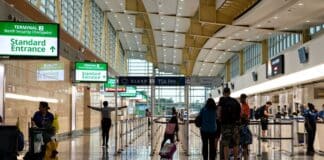South Korean law enforcement officials on Wednesday launched their second effort to detain impeached President Yoon Suk Yeol. Yoon faces allegations of rebellion following his brief declaration of martial law on December 3, an act that prompted his impeachment by the opposition-controlled National Assembly.
The Corruption Investigation Office for High-Ranking Officials, supported by police forces, is investigating whether Yoon’s martial law declaration constituted an attempted rebellion. Their initial attempt to detain him on January 3 was thwarted by Yoon’s presidential security service, which fortified the official residence with barbed wire and rows of buses. Despite a court-issued warrant, the security service has maintained its stance, insisting on its duty to protect the impeached president.
Tensions were high outside Yoon’s residence in Seoul, where lawmakers from his People Power Party and at least one of his lawyers confronted anti-corruption officials. Competing protests also erupted nearby, with Yoon’s supporters and critics rallying under heavy police presence. Authorities deployed thousands of officers, cordoning off the area with barricades and buses.
Yoon’s Chief of Staff Chung Jin-suk suggested an alternative solution, proposing questioning Yoon at a neutral location or within the residence. However, Yoon’s legal team rejected this, emphasizing no immediate plans for cooperation. Yoon has remained confined to his residence for weeks.
The standoff stems from Yoon’s declaration of martial law, during which troops briefly surrounded the National Assembly. Lawmakers quickly convened and voted to overturn the measure. On December 14, the Assembly impeached Yoon, accusing him of rebellion, suspending his presidential powers pending a Constitutional Court decision.
Authorities are considering stronger measures, including potential arrests of bodyguards obstructing the detention. If Yoon is detained, investigators may seek court approval for formal arrest. Without it, he would be released within 48 hours.
The case has drawn significant attention, with law enforcement agencies preparing for a possible multiday operation to resolve the escalating standoff.





